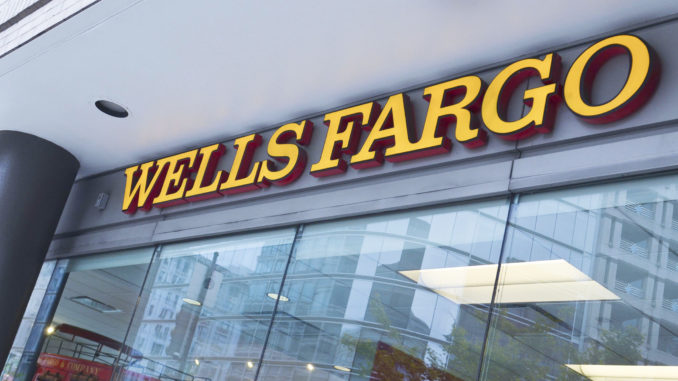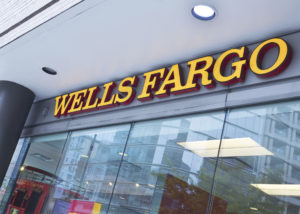

NNPA By Dr. John E. Warren, Publisher, San Diego Voice & Viewpoint Newspaper Intergovernmental Affairs Contributing Writer
During the last 10 years, a reported 109 lawsuits have been filed against Wells Fargo Bank covering 43 subject areas. Some of these are:
Breach of Contract, Breach of Fiduciary Duty, Breach of Good Faith, Collusion to illegally set ATM Rates, Conspiracy, Discrimination against Minorities, Employee Unpaid Overtime, Excessive ATM Fees, Excessive Overdraft Fees, False Certification, Falsified Documents, Hidden Illegal Fees. Also, Improper Investment Advice, Inflated Insurance to Pay for Kickbacks, Insurance Overcharges, Loan Modification Denials, Mortgage Origination Fraud, Predatory Lending Practices, Property Conversion, Racial Discrimination, Recording False Affidavits, Robosigning, Securities Fraud, Selling Properties they did not own, Unlawful Termination of Employees, Violating Truth in Lending Laws and Wrongful Foreclosures.
The following highlights a few of the cases related to the above mentioned specific lawsuits: November 2007, in Gipson et al. vs. Wells Fargo, the bank was sued for Breach of Fiduciary Duty by allegedly engaging in prohibited transactions. In October 2008 Hagens Berman sued Wells Fargo for excessive overdraft fees charging that customer transactions were illegally reordered so as to maximize late and overdraft fees.
In 2010, the City of Baltimore, Maryland sued Wells Fargo for Predatory Lending – Ghetto Loans. The judge dismissed the case and blamed the recession. In 2012 in the case of Ward et al. vs. Wells Fargo, the bank, was sued for Breach of Contract-Wrongful Foreclosure. In February 2011, in a class action lawsuit brought in the State of Georgia on behalf of veterans, the court found that Wells Fargo overcharged veterans on mortgages and was forced to pay $10 million.
In October of 2012, the U.S. Department of Justice brought suit against Wells Fargo Bank in the U.S. District Court of Manhattan on charges of “a decade of misconduct under the Federal False Claims Act – false certification, mortgage lies, seeking $100s of millions of dollars. In August of that same year, the U.S. Securities and Exchange Commission fined Wells Fargo Bank $6.5 million for violation of section 8A of the Securities Act of 1933. In the February 2013 case of Malta vs. Wells Fargo Bank brought in California, Wells Fargo was sued for alleged violation of the Telephone Consumer Protection Act by calling cell phones without prior consent using an automated dialer or with a prerecorded voice message. Denying any liability, Wells Fargo Bank agreed to pay $17.1 million to fully resolve the matters.
In 2014 in the case of Garcia et al. vs. Wells Fargo, the bank was sued for violating the California unfair competition law by deceiving its customers that debit card purchases would be posted chronologically to their accounts when in fact Wells Fargo posted them in a high-to-low order for the sole purpose of generating overdraft fees. The bank was ordered to pay $203 million.
In 2015 in the case of Militello vs. Wells Fargo Bank suit was brought for Trust Fraud alleging (1) Breach of Fiduciary Duty, (2) Conspiracy to Defraud and (3) Negligence and Gross Negligence. The bank was ordered to pay $8 million.
In January of 2016 in the case of Manuel vs. Wells Fargo, the bank agreed to a settlement of $12 million to resolve a class action lawsuit that claimed the financial institution allegedly violated the federal Fair Credit Reporting Act (FCRA) after denying employment to a job applicant based on the results of a background check report.
In August of 2016, the U.S. Consumer Fair Practices Board sued Wells Fargo bank for charging illegal fees on student loans. The bank was fined $3.6 million. In February of that same year, the same federal agency charged Wells Fargo mortgage brokers with receiving illegal kickbacks in return for borrower referrals for title insurance and settlement services, from to 2009 to early 2014. The settlement fine was $16.2 million.
Coming up to September 2016, the same U.S. Consumer Fair Practices Board and the case of People vs. Wells Fargo & Co. in the Los Angeles superior Court brought suit against Wells Fargo for “secretly ramming phony accounts down customer’s throats.” The bank agreed to a settlement of $185 million.
Wells Fargo is bracing for its April 25 Shareholders meeting and the results of an investigation ordered by the board in relationship to the many problems that have become public.
Contributing research from Vaughn’s Summaries.

Be the first to comment